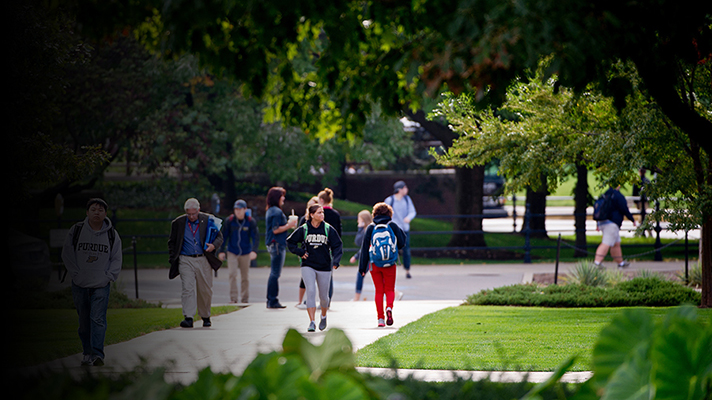The Office of Graduate Education offers services and resources that will enhance your graduate education experience as an Engineering student. Below are some important services and resources offered by the College of Engineering and others.
Have a suggestion or concern you’d like to report to the College of Engineering Graduate Education Team? Send us an email at engrgrad@purdue.edu, or submit using our Graduate Student Anonymous Reporting Form.

Workshops & Events

Transition to Grad School
Welcome to the Purdue University College of Engineering! We are excited you are joining us. Spend some time exploring this website, take advantage of the many opportunities you will find in your graduate program, the College of Engineering, and across the University. If you have specific questions, your graduate administrator is often an excellent first contact.